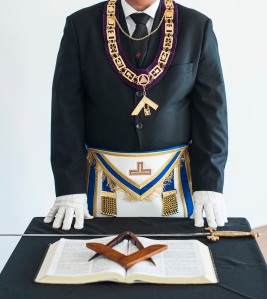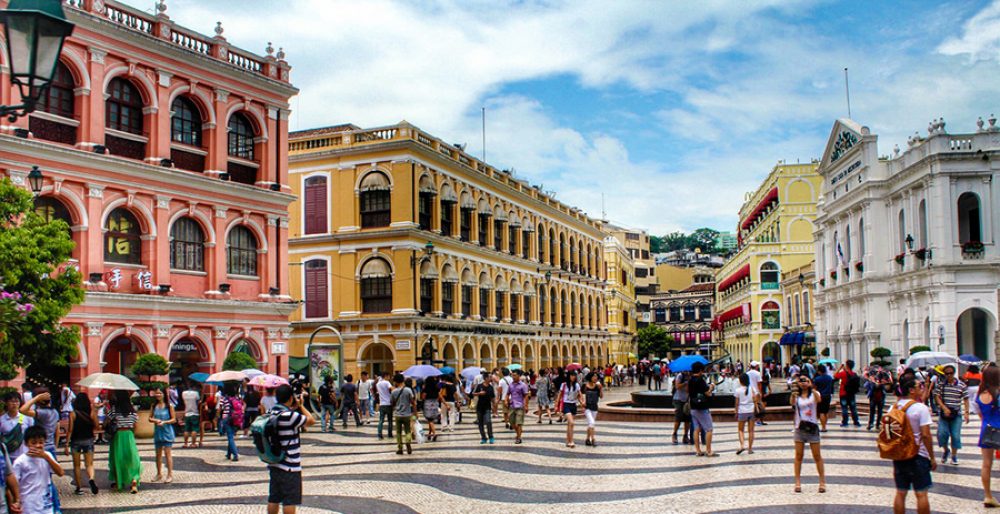 In Freemasonry the authority of the Lodge resides in the Worshipful Master. He is elected by the Masters to direct it and is assisted by two other officials: the Senior and the Junior Warden. He represents, symbolically King Solomon and that is one of the reasons why he sits in the East and holds a gavel and a sword. In large Obediences, the Master is the representative of the Grand Master or the District Grand Master. The W:.M:.’s authority is based on wisdom, reason, knowledge and the capacity to judge others. As in any group of men his authority can be challenged but a well educated Master knows when that challenge is positive or negative. A positive challenge helps him to grow as a leader and helps the Lodge to fortify its columns. A negative challenge is an invitation to disrupt, to protest and, in time, a pretext for the split. Lodges are human institutions: they are born, they grow up and sometimes they died. There is nothing troubling in that. Freemasonry is not an easy experience as it depends in what it is, truthfully. If one takes FM as a gentlemen’s club probably is no more different than other amusing experiences. It will last until the group feels that there is a reason to be together. But as an esoteric institution a Lodge is more than that: is a space of human improvement, of being frank to another and pursue in the Lodge (and beyond it) a spiritual path that may lead to more illumination. Men are different from each other and the Master must have the capacity to use each one abilities according with their qualities and limitations. But the Master has one duty: not allowing the quality of works to deteriorate to such a level that there is no more speculative freemasonry and work with symbols, but a pretext to be together, telling some jokes and having some beers. He may not be understood (at the beginning) if he takes this path, but this is the philosophy of Masonic command. The Master must see beyond the appearances, see the forest and not the isolated trees. If the Master trains himself to be a leader like that, others will follow and look to imitate him. There is nobody indispensable in Freemasonry. The Master of the Lodge needs to know when the collective needs him and does not need him, anymore. In very mature (and rare) Lodges the Master becomes, after some time, the Inner Guard, the humblest of the functions in a LODGE. But still there, in that position, he is appreciated as the spirit of the Lodge, exhibiting an authority that is natural and logic. A recent elected Worshipful Master will feel a privilege to learn from the old Master, to ask his advice. In more modern Obediences this succession is not completely understood and the new elected W:.M:. uses his acquired powers to project authoritarianism and vanity as he sits in the chair of the Master. In a few months he would destroy what has been build, brick by brick, by the previous Masters of the Lodge.
In Freemasonry the authority of the Lodge resides in the Worshipful Master. He is elected by the Masters to direct it and is assisted by two other officials: the Senior and the Junior Warden. He represents, symbolically King Solomon and that is one of the reasons why he sits in the East and holds a gavel and a sword. In large Obediences, the Master is the representative of the Grand Master or the District Grand Master. The W:.M:.’s authority is based on wisdom, reason, knowledge and the capacity to judge others. As in any group of men his authority can be challenged but a well educated Master knows when that challenge is positive or negative. A positive challenge helps him to grow as a leader and helps the Lodge to fortify its columns. A negative challenge is an invitation to disrupt, to protest and, in time, a pretext for the split. Lodges are human institutions: they are born, they grow up and sometimes they died. There is nothing troubling in that. Freemasonry is not an easy experience as it depends in what it is, truthfully. If one takes FM as a gentlemen’s club probably is no more different than other amusing experiences. It will last until the group feels that there is a reason to be together. But as an esoteric institution a Lodge is more than that: is a space of human improvement, of being frank to another and pursue in the Lodge (and beyond it) a spiritual path that may lead to more illumination. Men are different from each other and the Master must have the capacity to use each one abilities according with their qualities and limitations. But the Master has one duty: not allowing the quality of works to deteriorate to such a level that there is no more speculative freemasonry and work with symbols, but a pretext to be together, telling some jokes and having some beers. He may not be understood (at the beginning) if he takes this path, but this is the philosophy of Masonic command. The Master must see beyond the appearances, see the forest and not the isolated trees. If the Master trains himself to be a leader like that, others will follow and look to imitate him. There is nobody indispensable in Freemasonry. The Master of the Lodge needs to know when the collective needs him and does not need him, anymore. In very mature (and rare) Lodges the Master becomes, after some time, the Inner Guard, the humblest of the functions in a LODGE. But still there, in that position, he is appreciated as the spirit of the Lodge, exhibiting an authority that is natural and logic. A recent elected Worshipful Master will feel a privilege to learn from the old Master, to ask his advice. In more modern Obediences this succession is not completely understood and the new elected W:.M:. uses his acquired powers to project authoritarianism and vanity as he sits in the chair of the Master. In a few months he would destroy what has been build, brick by brick, by the previous Masters of the Lodge.
SUN YAT SEN LODGE N. 8
FREEMASONS OF MACAU

You must be logged in to post a comment.